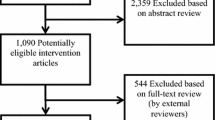Abstract
OBJECTIVE: This empirical study has its main object in highlighting the role of mother-child interactive experiences in the development of affective and communicative exchanges in infancy. METHODS: The study analyzed four groups of mother-child couples with children who presented a Specific Language Disorder (SLD) the first, a Feeding Disorder (FD) the second, the third an association of SLD and FD, and a fourth non clinical group. Diagnostic assessments were done through: a specific linguistic protocol, the Italian version of the Feeding Scale-Observational Scale for Mother-Infant Interactions during Feeding, specific psychodiagnostic questionnaires for mothers and children. CONCLUSION: A distortion in the communication area can significantly weigh upon the quality of infant-caregiver relationship: our data on mothers of children with a SLD/FD comorbidity confirm this finding by describing their children as prone to isolation and withdrawal, thus directing their efforts and worries to a specifically communicative and relational factor.
Similar content being viewed by others
References
Achenbach TM, Rescorla LA. Manual for the ASEBA Preschool forms & Profiles. University of Vermont, Department of Psychiatry, Burlington, VT, 2000.
American Psychiatric Association. DSM-IV-TR Manuale Diagnostico e Statistico dei Disturbi Mentali- Text Revision, 2000. Trad. it. Milano, Masson, 2001.
Ammaniti M, Ambruzzi AM, Lucarelli L, et al. Malnutrition and dysfunctional mother-child feeding interactions: clinical assessment and research implications. J Am Coll Nutr 2004a; 23: 259–71.
Ammaniti M, Lucarelli L, Cimino S, et al. Transmission intergenerationnelle: troubles alimentaires de l’enfance et psychopathologie maternelle. Devenir 2004b; 16: 173–98.
Beebe B, Lachmann FM. Representation and internalization in infancy: three principles of salience. Psychoanalytic Psychology 1994; 11: 127–65.
Chatoor I, Ganiban J, Hirsh R, et al. Maternal characteristics and toddler temperament in infantile anorexia. J Am Acad Child Adolesc Psychiatry 2000; 39: 743–51.
Chatoor I, Loeffler C, McGee M, et al (Eds) Observational Scale for Mother-Infant Interaction during Feeding. Manual, 2nd ed. Washington DC, Children’s National Medical Center, 1998.
Chatoor I. Feeding and other Disorders of Infancy or Early Childhood. In: Tasman A, Kay J, Lieberman J (Eds) Psychiatry. Philadelphia, WB Saunders, 1996, pp 638–701.
Cimino S, Lucarelli L. La classificazione dei disturbi alimentari nella prima infanzia: prospettive diagnostiche e di ricerca. Psichiatria dell’Infanzia e dell’Adolescenza 2001; 68: 543–60.
Cohen NJ. The impact of language development on the psychosocial and emotional development of young children. In: Tremblay RE, Barr RG, Peters RDeV (Eds) Encyclopedia on Early Childhood Development [online]. Montreal, Quebec, Centre of Excellence for Early Childhood Development, 2005, pp 1–7.
Derogatis LR. SCL90: Administration, Scoring and Procedures Manual for the Revised Version. Baltimore, Clinical Psychometric Research, 1983.
Drewett RF, Kasese-Hara M, Wright C. Feeding behavior in young children who fail to thrive. Appetite 2003; 40: 55–60.
Fabrizi A, Giamundo V, Setaro S. Responsività materna e modalità di attaccamento infantile nei bambini con disturbi dello sviluppo: un confronto tra disturbi pervasivi dello sviluppo e disturbi specifici del linguaggio. Psichiatria dell’Infanzia e dell’Adolescenza 2002; 69: 73–87.
Fabrizi A, Cacciamani F, Chiappa MB, et al. Disturbi del linguaggio e disturbi psicopatologici: un approccio evolutivo alle problematiche di intervento, in Psichiatria dell’Infanzia e dell’Adolescenza 2000; 67: 659–79.
Fabrizi A, Gullotta E, Levi G. Interactions atypiques dans les troubles du développement. Psychothérapies 2000; 20: 249–62.
Fabrizi A, Knauer D, Levi G, Modelli di attaccamento nei disturbi precoci dello sviluppo. Psichiatria dell’Infanzia e dell’Adolescenza 1996; 63: 29–39.
Fabrizi A, Levi G, Mazzei L, et al. Organizzazione emozionale e sviluppo psicopatologico nei disturbi precoci di linguaggio. Psichiatria dell’Infanzia e dell’Adolescenza 2003; 70.
Frigerio A (Ed) Questionario sul comportamento del bambino: 2–3. Bosisio Parini, Istituto Scientifico “E. Medea”, Associazione La Nostra Famiglia, 1998.
Garner DM, Garfinkel PE. The Eating Attitudes Test: An Index of the symptoms of anorexia nervosa. Psychol Med 1979; 9: 273–9.
Levi G, Fabrizi A, Gullotta E, et al. Disturbi del linguaggio e disturbi psicopatologici: legami patogenetici e problemi evolutivi. Psichiatria dell’Infanzia e dell’Adolescenza 1992; 59: 337–44.
Levi G, Dell’Uomo A, Diomede L, et al. Cluster neurolinguistici e funzioni comunicative nei disturbi specifici di linguaggio. G Neuropsichiatr Età Evol 2007; 27: 174–94.
Lindberg L, Bohlin G, Hagekull B, et al. Interactions between mothers and infants showing food refusal. Infant Mental Health J 1996; 17: 334–47.
Lucarelli L, Ambruzzi AM, Cimino S, et al. Feeding disorders in infancy: an empirical study on mother-infant interactions. Minerva Pediatrica 2003; 55: 243–53.
Lucarelli L, Cimino S, Perucchini P, et al. I disturbi alimentari nella prima infanzia: validazione di uno strumento osservativo dell’interazione madre-bambino. Infanzia e Adolescenza 2002; 1: 113–24.
Patel P, Wheatcroft R, Park RJ, et al. The children of mothers with eating disorders. Clin Child Fam Psychol Rev 2002; 5: 1–19.
Sameroff AJ, Fiese BH. Models of Development and Developmental Risk. In: Zeanah CH (Ed) Handbook of Infant Mental Health, 2nd ed. New York-London, The Guilford Press, 2000, pp 3–19.
Stein A, Woolley H, McPherson K. Conflict between mothers with eating disorders and their infants during mealtimes. Br J Psychiatry 1999; 175: 455–61.
Stein A, Woolley H, Murray L, et al. Influence of psychiatric disorder on the controlling behavior of mothers with 1-year-old infants. A study of women with maternal eating disorder, postnatal depression and a healthy comparison group. Br J Psychiatry 2001; 179: 157–62.
Stern DN. Le interazioni madre-bambino. Milano, Raffaello Cortina Editore, 1998.
Whelan E, Cooper PJ. The association between feeding problems and maternal eating disorder: a community study. Psychol. Med. 2000; 30: 69–77.
Zero To Three. Diagnostic Classification of Mental Health and Developmental Disorders of Infancy and Early Childhood: Revised Edition. Washington, DC, Zero To Three Press, 2005.
Author information
Authors and Affiliations
Corresponding author
Rights and permissions
About this article
Cite this article
Fabrizi, A., Costa, A., Lucarelli, L. et al. Comorbidity in specific language disorders and early feeding disorders: mother-child interactive patterns. Eat Weight Disord 15, e152–e160 (2010). https://doi.org/10.1007/BF03325294
Received:
Accepted:
Published:
Issue Date:
DOI: https://doi.org/10.1007/BF03325294




